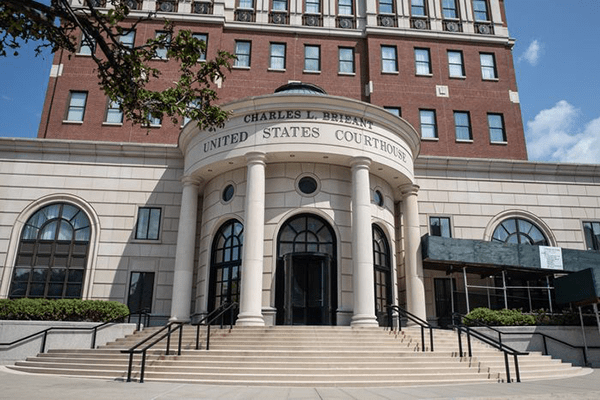|
RCBJ-Audible (Listen For Free)
|
Neighbors Of Khal Bnei Torah on Riverglen Drive in Haverstraw Lose Federal Lawsuit Challenging RLUIPA
THE LEGAL BEAT
In a second victory for Khal Bnei Torah (KBT) of Mount Ivy, a religious corporation that owns property at 62 Riverglen Drive in the Town of Haverstraw, a federal court dismissed a complaint brought by its neighbors that sought to have the Religious Land Use and Institutional Persons Act (RLUIPA) declared unconstitutional. The neighbors also sought to have KBT’s future occupancy of the property declared a public and private nuisance under state law.
Neighbors John Coritsidis, Tina Coritsidis and Kareen McKenzie filed suit in federal court in the Southern District of New York challenging RLUIPA as violating the federal constitution because it discriminates in favor of religion in violation of the Establishment Clause, which guarantees the free expression of religion but also prevents the government from passing laws that favor a particular religion.
The land use provisions of RLUIPA, a 1996 federal law, protect individuals, houses of worship, and other religious institutions from discrimination in zoning decisions by local governments and land use boards. According to the Department of Justice, RLUIPA prohibits zoning laws that: (1) treat churches or other religious assemblies or institutions on less than equal terms with nonreligious assemblies or institutions; (2) discriminate against any assemblies or institutions on the basis of religion or religious denomination; (3) totally exclude religious assemblies from a jurisdiction; or (4) unreasonably limit religious assemblies, institutions, or structures within a jurisdiction.
In an earlier suit, when the Town of Haverstraw Planning Board denied KBT approval to convert the house at 62 Riverglen into a house of worship, KBT sued the Town in federal court under RLUIPA. Haverstraw ultimately settled with KBT, granted it the approvals it sought, and paid KBT’s attorneys $235,000. At the time, Town Attorney Bill Stein said, “There was no rational basis for the planning board denying the application. This was not winnable on the town level.”
The homeowners in close proximity to KBT’s property, had filed a separate suit to have RLUIPA declared unconstitutional and KBT’s operation a nuisance, naming both the United States of America and KBT as defendants.
Based on their description of how KBT previously operated at 56 Riverglen (a property also owned by KBT), plaintiffs charged that KBT congregants “frequently park on both sides of the street overnight” and “walk in the middle of the street in dark clothing with no reflectors in dimly lit Riverglen Drive and the surrounding streets because members of Defendant Congregation cannot operate vehicles at various times.”
Plaintiffs alleged the anticipated operation of a house of worship at 62 Riverglen Drive would amount to “an intentional, unreasonable interference substantial in nature with Plaintiffs’ use and enjoyment of their land” that “creates a serious health and safety problem.”
On Wednesday, United States District Court Judge Cathy Seibel dismissed the suit against the United States of America based on its claim of sovereign immunity – that is the United States government can only be sued in limited circumstances where it agrees to be sued under a federal statute (such a for civil rights violations) or where it waives its sovereign immunity.
In this case, Judge Seibel found the United States had not waived its sovereign immunity and that no legal exceptions to waiver applied. She dismissed the suit for lack of “subject matter jurisdiction” – the legal basis that allows a federal court to exercise its jurisdiction. Absent subject matter jurisdiction, the court lacked the ability to hear the neighbors’ federal claims, and without the ability to hear the federal claims, it also dismissed the neighbors’ state law claims for public and private nuisance.
The nuisance claims were dismissed without prejudice meaning that the neighbors are free to file a case in state court, if they choose, charging nuisance.
“We are pleased with the Court’s decision to grant our motion to dismiss,” said Yehudah Buchweitz, counsel for KBT. “This dismissal is the latest example of a court rejecting an attempt to stop people from living or worshiping in a particular neighborhood simply because of the religion they practice, or in this case, because of the way they look.”
However, the case was dismissed for lack of subject matter jurisdiction and the court did not address other aspects of the case.
KBT also sought attorney’s fees from the neighbors under New York’s anti-SLAPP (Strategic Lawsuits Against Public Participation) statute – a law designed to dissuade frivolous suits filed for harassment purposes or to interfere with a party exercising its rights. KBT argued the neighbors brought the suit to punish KBT for relying on RLUIPA to secure its approvals. Judge Seibel declined to award the fees, saying New York’s anti-SLAPP did not apply in federal court.
The neighbors were represented by Elliot Louis Pell of New York City. KBT was represented by Yehudah Buchweitz of Weil Gotshall & Manges, also of New York City.
Click to view the Court’s Decision here.















